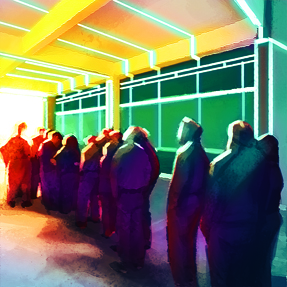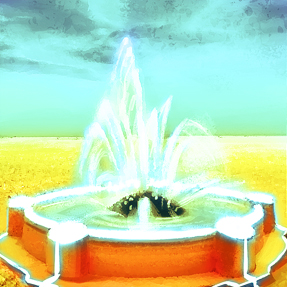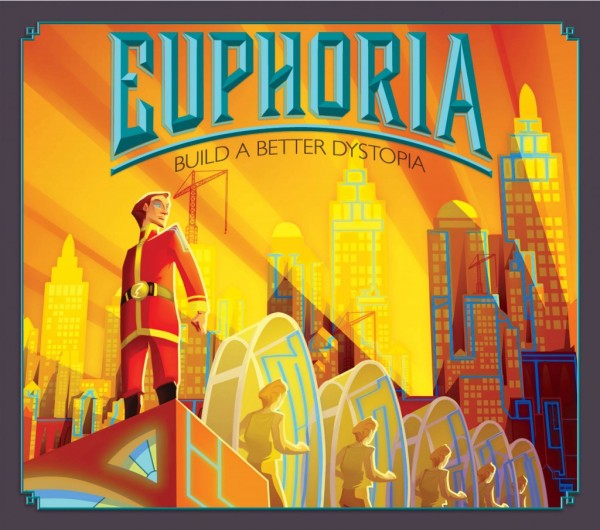 Last week, we released the first half of our conversation with Jamey Stegmaier of Stonemaier Games. They have a new Kickstarter out, Euphoria, that looks to explore a world of our possible dystopian future. People seem to be clamoring for such a future too: not only has it reached it’s $15,000 funding goal one hour after launch, but it’s blowing through stretch goals like regimes blow through civil liberties.
Last week, we released the first half of our conversation with Jamey Stegmaier of Stonemaier Games. They have a new Kickstarter out, Euphoria, that looks to explore a world of our possible dystopian future. People seem to be clamoring for such a future too: not only has it reached it’s $15,000 funding goal one hour after launch, but it’s blowing through stretch goals like regimes blow through civil liberties.
Part of this success is due to those who followed Viticulture’s campaign and are looking for a repeat. Another part is due to the tremendous and meticulous efforts that Jamey puts into raising awareness for the game through his blog, social media, and extensive playtesting in order to bring his games to market.
We think there’s some other motives at work, but it appears that those parts have been censored, logged away at Euphoria’s Registry of Personal Secrets, as depicted here one of three exclusive artwork pieces:
What follows is the non-redacted parts we can tell you about. In it, Jamey and Ryan continue their discussion on Euphoria and the Kickstarter culture, as well as speculating about the end of the world.
What is the biggest learning experience from your inaugural Kickstarter project, Viticulture, going into this one? Is there anything you hope to do differently?
Jamey: I mention the top five things I did wrong with the Viticulture campaign on this blog post, but there’s one other that has arisen since then: add-ons. I actually like the Viticulture add-ons a lot (wine glasses and corkscrews). They look good, they’re functionally apart from the game, and yet they’re thematically connected to the game, adding to the experience.
However, the add-ons definitely cost us quite a bit more than the pledges that went towards them. Shipping is the problem. I streamlined our distribution process so that the vast majority of the games are going through Amazon fulfillment centers in the US, Canada, and Europe. That was a change from my original plan, which had international games going to me to ship and pack.
The plan was to include the wine glasses and corkscrews with the games so I’d only have to send one package. Because the games are going from Amazon directly to backers, I had to send all the wine glasses and corkscrews separately, which cost a pretty penny, especially for those headed out of the US.
So there are two lessons here: know exactly how you’re going to ship your games, and don’t do add-ons unless they can be included in the box by the manufacturer.
What is the most memorable Kickstarter campaign that you’ve backed?
Ryan: I have to go with TMG’s Dungeon Roll. As it’s been pointed out by quite a few, the turnout for the game was so crazy that by the end it was less about the game than the campaign itself. The low price point and the amount of extras being thrown in I’m sure accounted for a lot of that (plus TMG’s tendency for good games). There’s been a few nail-biters to cross the finish line in the 11th hour, but it was nice to see a runaway financial game success that didn’t involve minis.
From a designer’s standpoint, what is your favorite aspect of using Kickstarter? What is your least favorite?
Jamey: Great question. By far my favorite aspect as a designer is the direct engagement I have with people who will play the game. Although we considered Viticulture a near-finished project heading into the Kickstarter, quite a few backers printed the game and playtested it during the campaign. Their feedback vastly improved the game – especially the 44 different visitor cards.
On a similar token, many Viticulture backers offered to print and playtest Euphoria before the campaign. 60+ people blind playtested Euphoria over the last few months, and the game is ten times better than when it entered the gauntlet of playtesting.
Least favorite…it’s tough to think of this, because I really enjoyed the process. I’ll say this: I can’t accept every piece of feedback.
I love feedback – I’m honored and flattered that anyone would take the time to play an unpublished game of mine – but if I said yes to every idea, all of my games would be terrible. However, I honestly can’t think of a single instance when someone got mad at me for not incorporating their idea into the game.
Have you ever playtested a soon-to-be published game?
Ryan: I’ve done a share of playing prototypes and Print & Plays, but not actual playtesting. At least, not for ones that are in the publishing phase. I’ve aided a few that may see distribution some day, but we’ll see.
What was the inception for Euphoria’s theme?
Jamey: I love dystopian fiction.It might be the only literary genre that gets me excited simply when I see those words: dystopian fiction. I enjoy lots of genres, but usually I’m drawn to a specific author, series, or concept, not an genre in its entirety. I love the choices characters have to make in dystopian fiction, and I love discovering the alternate futures presented in dystopian literature (and how the world got that way). I like that that there are nuances between the good guys and the bad guys in dystopias; everyone thinks what they’re doing is for the betterment of the world.
The idea for the game actually turned up during the creation of Viticulture. Viticulture is a worker-placement game, and one day during a playtest I pondered, “Why are these workers blindly doing whatever the players want them to do?” I thought about other worker placement games, and I’m not aware of a single game where your workers don’t do exactly as they’re told. Which is fine, but it’s not particularly thematic. One of the few instances where it works thematically is a dystopia: in a dystopia, workers do exactly what they’re told, even if it’s something ridiculous like generating power on a giant hamster wheel. They don’t know any better. Given my love for worker placement combined with my love for dystopian fiction, I had to try to design a mashup of those two concepts.
Do you read dystopian fiction? If so, what are a few of your favorite books in that genre?
Ryan: Oh, this is a much better question for some of the other Cardboard Republic crew than me. I know enough of the better known classics (Brave New World, Fahrenheit 451, 1984, etc.), but I’m more of a film person for my dystopias. In that I’d include Blade Runner, Logan’s Run, V For Vendetta, 12 Monkeys, Bunraku, and the Mad Max series. (Or Road Warrior at least.)
Euphoria notwithstanding, what is your favorite dystopian story?
Jamey: I’m going to have to say Ready Player One. I actually approached Ernest Cline to see if I could acquire the board game rights to the book, but apparently the company that bought the film rights owns all game-related rights. Nice guy, though. It was nice of him to take the time to reply to my query.
During the Kickstarter campaign, I’m hosting a tournament on the Stonemaier Games blog to let backers choose the apocalypse that causes the world of Euphoria to come into existence. 16 apocalyptic scenarios will enter, but only 1 will prevail.
We’re then going to use that apocalyptic scenario to create one new recruit for each faction to go in every copy of the game. Thus, backers will have a direct impact on an important aspect of the game. Any predictions on which scenario will win?
Ryan: There are always so many to choose from…I’m always a fan of those ending up that way due to our own hubris since we’d clearly never let it get that way to begin with. Based on the 16 available, the ones that I’d say are closest to that idea are moon implosion or robot uprising…
Are you an Icarite? Be honest.
Jamey: Icarites are known for their dishonesty, making this question impossible to answer. I can say with confidence that I’m not not an Icarite.
We thank Jamey for taking the time with us to discuss his new Kickstarter, though several pressing questions remain. How many stretch goals will the game reach? Which apocalyptic event caused their world to end up that way? Is Jamey, in fact, an Icarite as we suspect?
All of these questions will hopefully be revealed as we continue to explore our dystopian future, in Euphoria.




